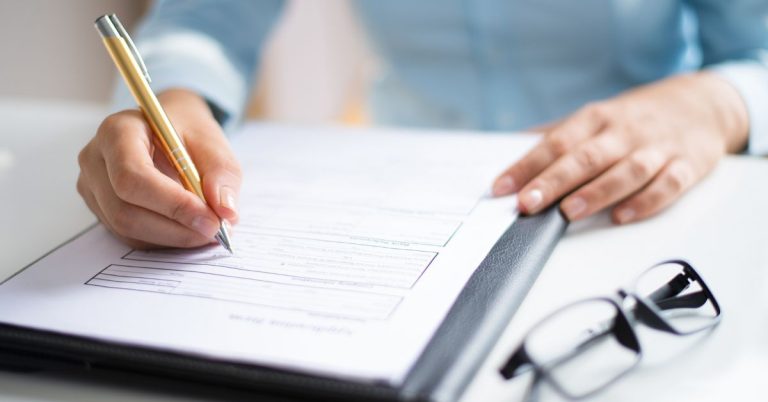P85 Form: Check Your Income Tax if Leaving the UK.
If you are planning to move abroad, you’ll want to make sure you’ve got everything covered. From making sure you know what you’ll owe in taxes to filing your return, there are plenty of things you need to do. Here’s how to find out about HM Revenue & Customs’ rules on working abroad.
You must inform HMRC if your address changes. If you’re going to be living abroad for longer than 12 months, you’ll need to tell HMRC. This includes if you change addresses within the EU.
The rules around paying tax while you’re away vary depending on whether you’re self-employed or employed. For example, if you’re self-employed, you won’t have to pay tax if you earn £8,105 or less per annum. However, if you’re employed, you’ll have to pay tax on any earnings over £8,105.
You don’t have to pay tax on wages earned during periods where you’re travelling. But you will have to pay tax on your earnings if you’re working abroad for less than 12 consecutive months.
How to tell HMRC
HM Revenue & Customs will send you an email confirming receipt of the application. You must complete it within 14 days of submitting it.
Fill in this form online or print off a PDF version here.
Use the guidance notes below to make sure you are eligible for the scheme.
Make sure you read through the Terms and Conditions before completing the form. If you don’t agree with them, you won’t be able to use the scheme.
If you’re unsure about anything, contact us. We’ll do our best to answer your questions.
If you do not normally file a Self Assessment tax return, you must do so this year.
Fill out form P85 online
You’ll need to include the following information:
Your personal details
What you earned during the tax year
How much you paid into income tax
The amount of National Insurance contributions you pay
Any reliefs you are entitled to claim
Details of the money you received from work
And how much you spent on things like rent, mortgage interest payments, childcare costs, etc.
Fill out form P45
This is a self assessment form. You must use it to tell HM Revenue & Customs about what you earn and spend each month.
You’ll need to provide evidence to support your claims. This could include bank statements, invoices, receipts, letters from employers and landlords, and more.
Get form P45 from your employer (if applicable) or from Jobcentre plus (if applicable).
If you normally file an Individual Tax Return
You can leave the country without paying any tax. If you normally complete a Self Assessment tax form, you don’t need to do anything special to file it. However, if you’re planning to travel abroad, we recommend that you check whether you’ll need to inform HM Revenue & Customs (HMRC).
There are three main reasons why you might want to tell HMRC about your trip – if you plan to take up residence overseas, if you plan to work overseas, or if you plan to live off income earned abroad.
If you plan to spend less than 183 days away from home, there’s no need to notify HMRC. This includes holidays.
However, if you plan to spend more than 183 days away from the UK, you must let HMRC know. Your return won’t be accepted unless you submit it within 9 months of returning to the UK.
If you plan on working while you’re abroad, you’ll need to register with HMRC. To do this, you’ll need to fill out a Form P11D.
This form asks questions such as how long you intend to work abroad, what type of job you’re doing, and where you’ll be based. Once completed, you’ll send your application to HMRC. They’ll process your request within 10 weeks.
If you’d like to find out more information about registering with HMRC, please contact us.
If you’re owed a refund
Students should consider claiming back any amount owed if they worked outside of the UK before moving there, according to HM Revenue & Customs. This includes unpaid wages, National Insurance contributions and income tax.
Tax refunds are based on what taxpayers earned while living abroad, rather than the number of days spent working in the UK. Different countries have different limits on how much you can reclaim.
The government says it wants to encourage people to work abroad, but students who move away from home without paying taxes could find themselves out of pocket.
Tax if you’re non-resident
Nonresidents who make money in the UK are required to pay UK taxes on any foreign earnings. This applies even if you do not reside in the UK. You must report your worldwide income to HM Revenue & Customs. However, there are some exceptions. If you qualify for one of the following exemptions, you won’t owe UK tax:
– You’ve lived in the UK for over 183 days out of the previous 12 months.
– Your home is outside the EU.
– You work for a charity registered in England.
– You’re a full-time student.
– You’re self-employed.
If you fall into one of those categories, you’ll likely not owe UK tax on your earnings. But if you’re not sure whether you qualify, talk to a professional accountant.
National Insurance
You can’t claim National Insurance while you’re overseas, even if you intend to return to the UK or claim your state pension later. But there are ways around it.
If you move to an EEU country, you might still receive National Insurance payments. And if you move to one of the countries outside the European Union, you might qualify for Universal Credit benefits.
But if you live abroad for over three months, you won’t be able to make claims. So if you want to keep claiming NI, you’ll need to find somewhere else to live.
If your circumstances change
Contact HMRC if your circumstances change – such as getting married, having children, buying a house, moving home, starting work or changing jobs. You might even want to contact HMRC if you are planning to move abroad.
Your National Insurance Number will help HMRC check whether you are eligible for benefits or allowances.
If you return to the UK from overseas, you must tell HMRC about it within 3 months. This includes returning to live permanently in the UK, or coming here temporarily for a holiday or study.
You don’t have to pay anything now, but you’ll have to pay back taxes owed over three years.
HMRC says there are some exceptions to this rule, including if you’re exempt because you’ve been away for less than 12 months, or if you’re under 18 and still a student. But if you fall into one of those categories, you won’t be able to claim back money you owe.
Visiting the UK
The United Kingdom doesn’t just welcome visitors — it welcomes people like me. I am a British citizen living abroad, and I’ve been coming here regularly since I was 15. My family still lives in England, so I go home every few months to see them. But I love London, and I always come back.
I know what it feels like to live in another country, because I grew up in Australia. When I moved to the UK, I had no idea how much my life would change. So now I want to help others make sense of the process.
This guide explains everything you need to know about getting a visa to work, study or holiday in the UK. You’ll learn why you need to apply for a visa, where to find out if you qualify, and how to do it.
You’ll also discover some great tips on making sure you enjoy your trip once you arrive.
Whether you are planning a short break or studying in the UK for three months, this guide will give you everything you need to know.
Frequently Asked Questions
Am I due a P85 tax refund?
If you are moving out of the UK and want to claim a tax refund, there are certain things you need to know about how the process works.
What happens when I leave the United Kingdom?
If you are planning to move abroad, it is important to know what happens if you leave the UK without completing a tax return. You must file a tax return if you earn over £16,300 per annum, or £11,850 if you are married filing jointly. If you are self-employed, you must complete a Self Assessment Tax Return each year.
You may be eligible for an income tax rebate if you left the UK within three months of starting work. However, there is no guarantee that you will receive a refund. The amount of your refund depends on how long you lived in the UK, how much you earned while you were here, and whether you paid National Insurance contributions during your time in the UK.







